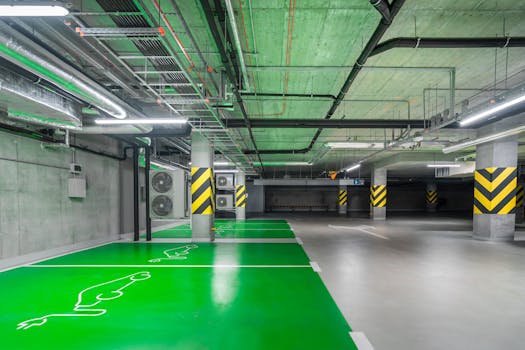
Sustainable Cities: How Europe is Shaping Eco-Friendly Lifestyles by 2025
Sustainable Cities are becoming increasingly important as the world shifts towards a more eco-friendly lifestyle. Europe is at the forefront of this movement, with many cities adopting green initiatives and promoting sustainable living. In this article, we will explore how Europe is shaping eco-friendly lifestyles and what we can expect by 2025.
Introduction to Sustainable Cities
Sustainable cities are designed to minimize their impact on the environment while providing a high quality of life for their citizens. This is achieved through a combination of green infrastructure, renewable energy sources, and eco-friendly transportation systems. European cities are leading the way in sustainable development, with many cities investing heavily in green initiatives.
European Cities Leading the Way
Cities such as Copenhagen, Stockholm, and Amsterdam are at the forefront of sustainable development. These cities have implemented a range of green initiatives, including bike-friendly infrastructure, green roofs, and district heating systems. For example, Copenhagen’s district heating system provides heat to over 98% of the city’s buildings, reducing carbon emissions and reliance on fossil fuels.
Green Initiatives in European Cities
European cities are implementing a range of green initiatives to reduce their environmental impact. Some of the most notable initiatives include:
- Renewable energy sources: Many European cities are investing in renewable energy sources, such as wind and solar power, to reduce their reliance on fossil fuels.
- Green transportation: Cities are promoting eco-friendly transportation options, such as electric and hybrid vehicles, and improving public transportation systems.
- Green infrastructure: Cities are investing in green infrastructure, such as parks and green roofs, to reduce urban heat island effects and improve air quality.
- Sustainable waste management: Cities are implementing sustainable waste management systems, including recycling and composting programs, to reduce waste and minimize environmental impact.
Shaping Eco-Friendly Lifestyles by 2025
By 2025, we can expect European cities to continue leading the way in sustainable development. Some of the key trends and initiatives that will shape eco-friendly lifestyles include:
- Increased use of renewable energy sources: As technology improves and costs decrease, we can expect to see a significant increase in the use of renewable energy sources, such as solar and wind power.
- Electrification of transportation: Electric vehicles will become increasingly popular, reducing greenhouse gas emissions and improving air quality.
- Green infrastructure: Cities will continue to invest in green infrastructure, including parks, green roofs, and green walls, to improve air quality and reduce urban heat island effects.
- Sustainable consumption: Cities will promote sustainable consumption patterns, including reducing waste, increasing recycling, and encouraging the use of eco-friendly products.
Conclusion
In conclusion, European cities are leading the way in sustainable development, promoting eco-friendly lifestyles, and shaping the future of green living. By 2025, we can expect to see significant progress in the use of renewable energy sources, electrification of transportation, green infrastructure, and sustainable consumption patterns. As the world continues to urbanize, it is essential that cities prioritize sustainability and promote eco-friendly lifestyles to ensure a healthy and prosperous future for all.





